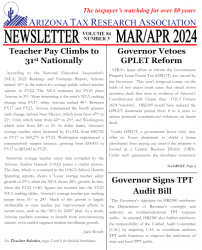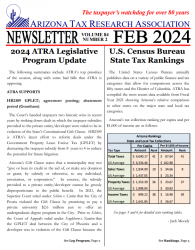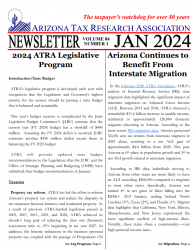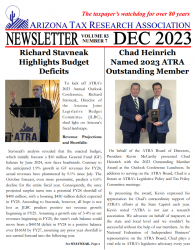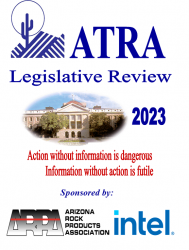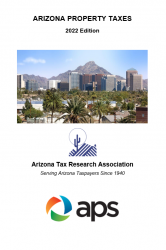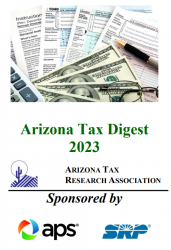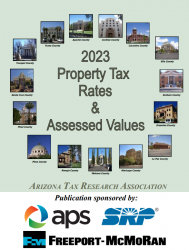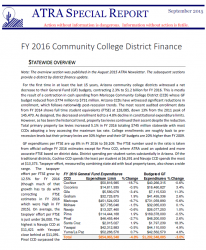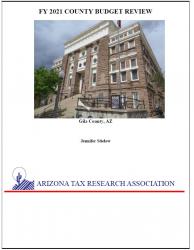Homepage
Latest
Watch ATRA's 80th Anniversary Video on Youtube!
Position Papers:
Special Reports
Invest in Ed Tax Increase is Misguided and Cynical
PSPRS Costs Plague City, Fire District Budgets
ATRA Opposes the Steyer Initiative
ATRA Opposes the Income Tax Hike
ABOR Tax Free Zones
Press Releases
Recent Publications
ATRA in the News
A Republican bill that would rein in a controversial tax break used by municipalities to entice large development projects that cities say they need is one step closer to being sent to the governor’s desk.
Rep. Travis Grantham, R-Gilbert, wants to reduce the amount of time a property can receive a Government Property Lease Excise Tax, or GPLET for short, from eight years down to four years.
Opinion: Voters should read the fine print in election publicity pamphlets. Bonds absolutely extend the life of the taxes you pay.
“Proposition 132 will provide an added degree of protection for Arizona taxpayers regarding future efforts to increase taxes in statewide elections,” Arizona Tax Research Association President Kevin McCarthy said. “Ensuring that future tax increases garner broad public support is good policy and creates needed stability in Arizona’s tax code.”

